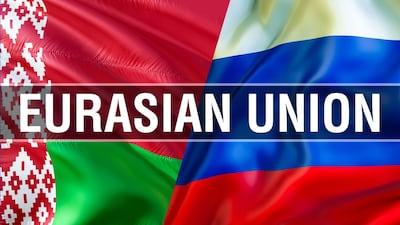Kyrgyzstan
Country
Russia and Ukraine had been key players in the pharma markets of Central Asian and surrounding countries before the launch of the Russian invasion into its neighbor on 24 February. Because of this, both countries are poised to give ground in this growing regional market.
Pharmaceutical leaders are responding to the many and varied challenges arising from the war in Ukraine.
After a five-year regulatory transition, access to the Eurasian Economic Union market for new medtech products must now take place via the EAEU system only. But having got off to a slow start, further system transitional measures are now under discussion.
The Eurasian Union’s medical device regulatory system, many years in the planning, becomes mandatory in January 2022. But new amendments posted in late summer allow for national registrations to remain valid after the deadline. Moscow-based consultancy RegMT explains the background, and the likely path ahead.
There are just 4.5 months left until the new harmonized Eurasian Economic Union medtech system becomes mandatory, signifying major changes in regional market access. EAEU member Russia is meanwhile strengthening its post-market medtech controls.
Reporting double-digit growth in the first half of 2019, Krka says it has mined marketing opportunities in new eastern European markets by introducing its established treatments for cardiovascular diseases
Various economies of the Commonwealth of Independent States (CIS) and the Eurasian Economic Union (EAEU) are pressing ahead with medtech regulatory changes nationally and/or regionally, which can only be good for the delivery of quality care over the long term. But a question mark still hangs over the official start date of the EAEU medtech regulatory system; a formal postponement may be decided soon.
It might seem that the Eurasian Economic Union (EAEU) agreement on medical device regulation is nothing but administrative issues and slow progress, but it should deliver benefits to all stakeholders after launch, currently slated for 2022. but manufacturers need to be mindful of the member states' strengths and weaknesses when selecting their reference member state.
The transition deadline for adoption of Eurasian Economic Union (EAEU) medtech principles across the five member states remains the end of 2021, but vital elements are still not resolved, giving rise, for the first time, to notions of a delay in adoption. This would be the pragmatic course, local market experts believe, but for now, efforts are aimed at completing the system on time.
Pharmaceutical firms operating in Russia and some of its neighbouring countries might want to cast an eye over their local manufacturing strategy after the government imposed new restrictions on state purchases of foreign-made essential medicines.
Many medical treatments, even with cheap generic products, are unaffordable for patients in Kyrgyzstan, where around half the population lives below the poverty line, says a recent report from Health Action International (HAI), the non-profit independent network of more than 200 members, including consumer groups, healthcare providers and researchers in more than 70 countries.






